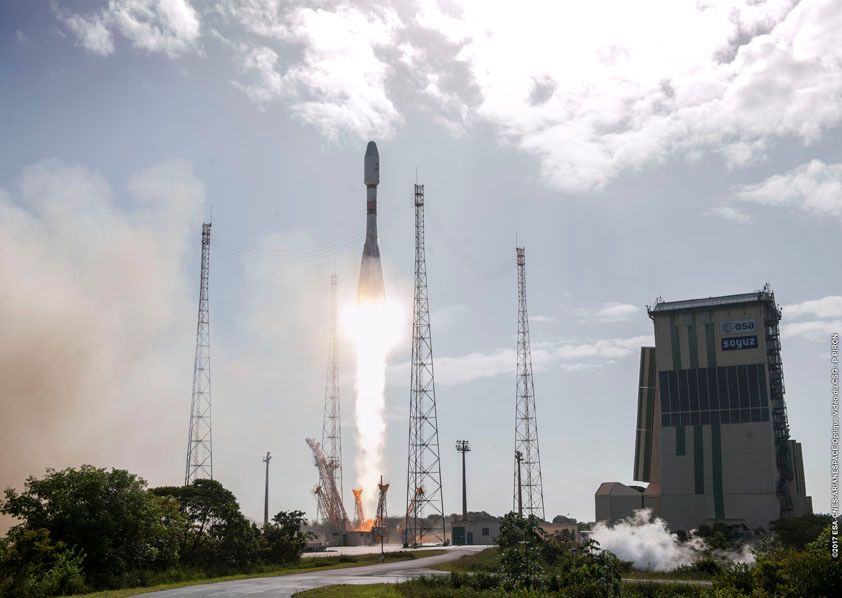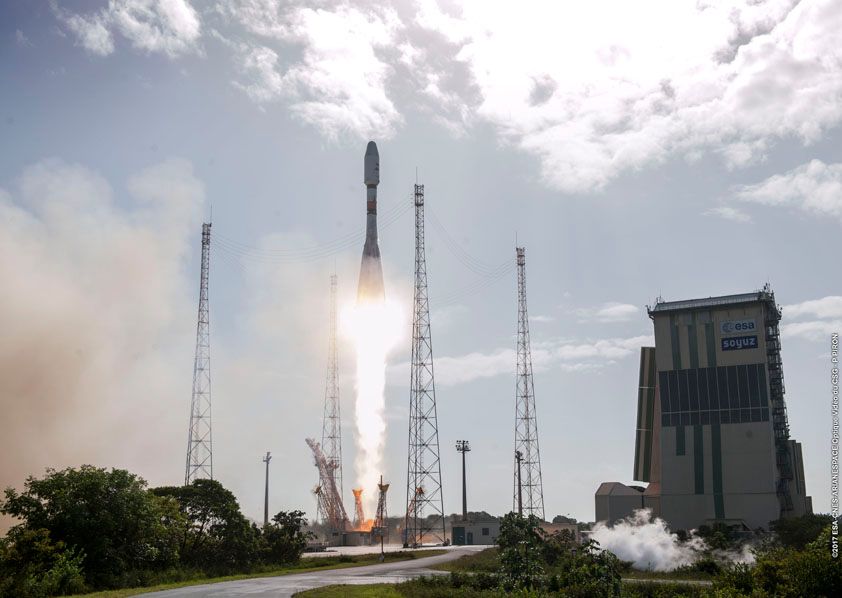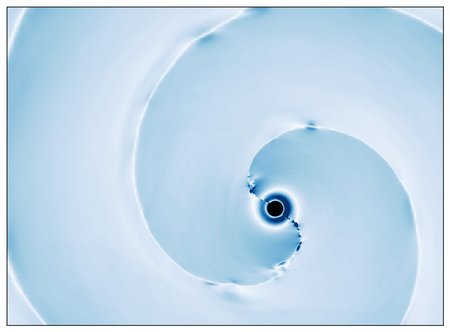
Update for Dec. 3: Due to poor weather, Arianespace has again delayed this launch by 24 hours. Liftoff is now scheduled for Saturday, Dec. 4. The exact time of the targeted liftoff has not yet been announced.
Update for Dec. 2: Arianespace is now targeting launch on Friday (Dec. 3) for the Galileo satellite mission on a Russian-built Soyuz rocket. Liftoff is set for Dec. 3 at 7:23 p.m. EST (0023 GMT).
Arianespace plans to send two new European Galileo navigation satellites to space tonight (Dec. 2) and you will be able to watch it live online.
An Arianespace Soyuz rocket will launch two navigation satellites into orbit at 7:27 p.m. EST (9:27 p.m. local time at the Guiana Space Center launch site in Kourou, French Guiana, or Friday, Dec. 3, at 0027 GMT). France-based Arianespace is expected to webcast the launch live on YouTube, which you can watch here, once it is available. Arianespace typically begins its launch webcasts about 20 minutes before liftoff.
The European Space Agency will also webcast the launch on its ESAWeb TV stream. The mission, if successful, will grow the European global satellite navigation satellite to 28 members. The nearly six-year-old constellation serves 2.3 billion users around the world, Arianespace said in launch documentation.
Related: How rockets work: A complete guide
Arianespace will use a Soyuz rocket produced by the Progress Space Rocket Center, which is a part of the Russian space agency Roscosmos. This is the fourteenth time this partnership aimed to send a Galileo mission to space, Arianespace said.
The mission is being performed for the European Space Agency (ESA), on behalf of the European Commission, to bring “strategic autonomy and sovereignty to the EU [European Union] citizens and its member states,” Arianespace said of the mission.
Galileo is similar to the United States Global Positioning System (GPS) and the Russian Glonass system, but aims to give Europeans a homemade alternative should one of these other systems become unavailable to them.
The 26 Galileo satellites now in orbit were launched both by Soyuz rockets and by the company’s own heavy-lift rocket, Ariane 5. Arianespace plans six more Galileo satellites in the coming years using Soyuz and a next-generation rocket Ariane 6 version known as Ariane 62. The first flight of the Ariane 6 rocket is expected now in 2022, delayed from 2020.
Tonight’s mission, known as Galileo FOC-M9, will be the 61st mission launched by Arianespace on behalf of ESA and will carry the 83rd and 84th satellites for the partnership. The delivered satellites will join the rest of the Galileo constellation in medium Earth orbit at 14,429 miles (23,222 kilometers), according to ESA documentation.
Follow Elizabeth Howell on Twitter @howellspace. Follow us on Twitter @Spacedotcom and on Facebook.



